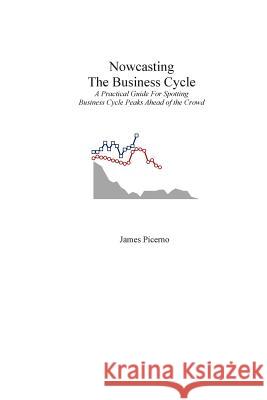Nowcasting The Business Cycle: A Practical Guide For Spotting Business Cycle Peaks » książka
Nowcasting The Business Cycle: A Practical Guide For Spotting Business Cycle Peaks
ISBN-13: 9781492923855 / Angielski / Miękka / 2014 / 154 str.
Nowcasting The Business Cycle presents a practical guide for analyzing recession risk-the primary risk factor that drives success and failure in business, finance, wealth management, and so much more. Whether you're an individual investor watching over your retirement account; the owner of a small business; a manager running a billion-dollar pension fund; or a CEO in charge of a global corporation, a large portion of triumph and defeat is closely linked with the broad swings in the economy. The business cycle, in other words, is the mother of all known (and recurring) risk factors. Accordingly, developing a process for assessing the likelihood of this threat is critical. Everyone needs a reliable, timely warning system that's relatively uncomplicated and transparent. Drawing on economic theory and macro's historical record, Nowcasting The Business Cycle outlines a simple but effective model for identifying those times when a new recession has probably started. This isn't forecasting, which is a fool's errand when it comes to the economy. Instead, the goal is recognizing when a majority of key indicators have already reached a tipping point. That may sound like a trivial advantage, but most people-including many economists-don't fully recognize when a recession has begun until the deterioration is obvious. By that point, the opportunity has probably passed for taking defensive measures in your investment portfolio, your business, or your career. The real challenge is less about predicting and more about developing solid intuition for recognizing when the macro threat is exceptionally high. Even a small degree of progress here can provide a considerable boost to your strategic insight. If we can learn the techniques for recognizing a cyclical downturn's presence relatively early-soon after it's begun, or just as it's starting-we'll have an advantage that tends to elude most folks. Nowcasting The Business Cycle provides a roadmap for ensuring that you won't be caught by surprise when the next recession strikes. That's a crucial advantage for one powerful reason: There's always another recession coming.
Zawartość książki może nie spełniać oczekiwań – reklamacje nie obejmują treści, która mogła nie być redakcyjnie ani merytorycznie opracowana.











